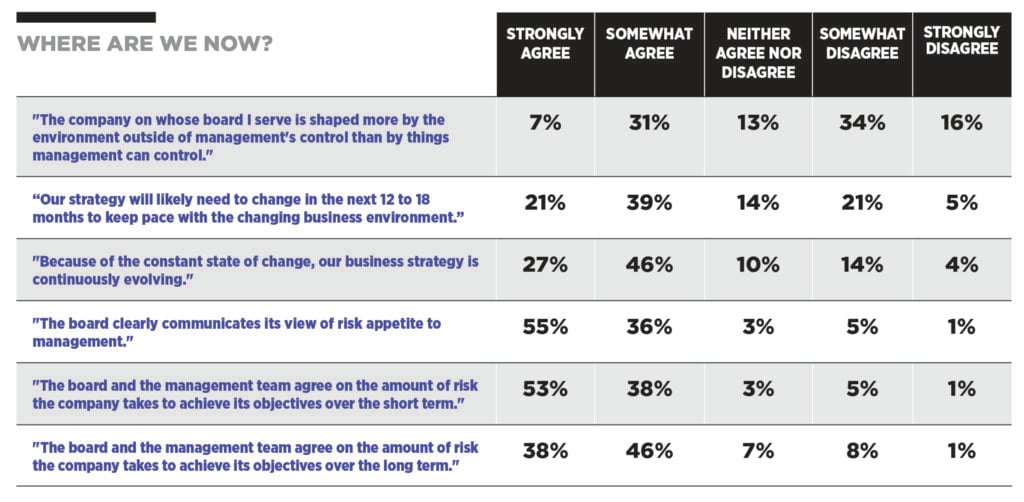AI will not cure groupthink—the No. 1 board disease. Many executive search firms define their board recruiting mission around identifying candidates with needed expertise, yet once hired, such expertise is often undermined by the board’s pressure for consensus. The misguided celebration of group consensus in the bestselling 2004 book The Wisdom of Crowds encouraged such steamrolling over of individual expert dissent.
Boards now hope that AI tools can compensate for their knowledge gaps, even as they struggle with oversight of the technology. A recent Deloitte survey of 600 directors on major global company boards across 57 countries found 50 percent believe they don’t understand their AI usage even as investments skyrocketed past $5 trillion in that space. Yes, AI, too, can be subverted by favoring echo chamber repetition of conventional wisdom over less well-showcased truth.
THE PITFALLS OF POPULAR THINKING
A lesson can be drawn from the 2003 best seller The Smartest Guys in the Room by Bethany McLean and Peter Elkind, the meticulously researched story of the collapse of Enron that revealed the bravado and shared delusions of highly sophisticated financial, economic and regulatory experts in management but also on its board. Enron’s demise derailed the careers of 26,000 employees, wiping out their life savings along with shareholders’ investments. Full governance collapses followed at 60 other revered firms across industry in the early 2000s.
A few years later, a similar toxic pathology of arrogance and greed blinding financial wizards was documented in the 2009 best seller Too Big to Fail. In this book, Andrew Ross Sorkin chronicled the collapse of the venerable Lehman Brothers investment bank that ultimately tanked the entire U.S. financial system.
Decades earlier, in the 1972 bestseller, The Best and the Brightest, David Halberstam detailed the origins of the escalating U.S. role in the Vietnam War. He profiled the distorted thinking of brilliant diplomats, revered industrialists and renowned academicians brought in by Presidents Kennedy and Johnson. Despite their collective expertise, this consortium fell victim to shared delusions, causing an escalation of the tragic quagmire that resulted in 3 million Vietnamese killed, close to 60,000 American deaths and the fall of Saigon.
COSTLY CONSENSUS
These classic critiques of flawed decision-making due to toxic group conformity were first labeled as “groupthink” in Fortune in 1952 by William H. Whyte. Yale psychologist Irving Janis, in 1972, published the first scholarly analysis of this pathology, initially applied to foreign policymakers, later expanded to other sectors. Janis explained that groups often suppress dissenting voices due to misguided pressure for harmony and cohesion. Consensus is achieved through suppression of individual dissent in the face of shared self-righteousness, leaving the group unprepared for error.
Sadly, AI technology is no savior for correcting groupthink, as AI suffers from the same similar echo chamber pathology. Working with Yale colleagues, we found five leading AI models—including Elon Musk’s Grok—correctly labeled 20 of President Donald Trump’s recent major public policy assertions as false claims. Musk subsequently intervened with a reported apparent right-wing update, insisting that users “should notice a difference.” Grok promptly began spewing out virulently antisemitic cliches, praising Hitler and condoning political violence against fellow Americans until Grok reinstated corrective guardrails
However, AI is not only easily subject to “trainer” manipulation, it also falls victim to echo chamber repetition of the most popular repeated assertions in articles reviewed. We asked five leading AI platforms—OpenAI’s ChatGPT, Perplexity, Anthropic’s Claude, Elon Musk’s Grok and Google’s Gemini—identical questions, and we received different and sometimes opposite answers, reflecting dangerous AI-powered groupthink and hallucinations.
Clearly, boards cannot rely on delegation to expert recruits nor worshipping AI platforms as substitute objective pillars of truth. Superficial group harmony and the deification of easily manipulated technologies exacerbate board weaknesses. Individual directors must still do their own homework, analyzing the strategic context and tradeoffs with open constructive debate.








